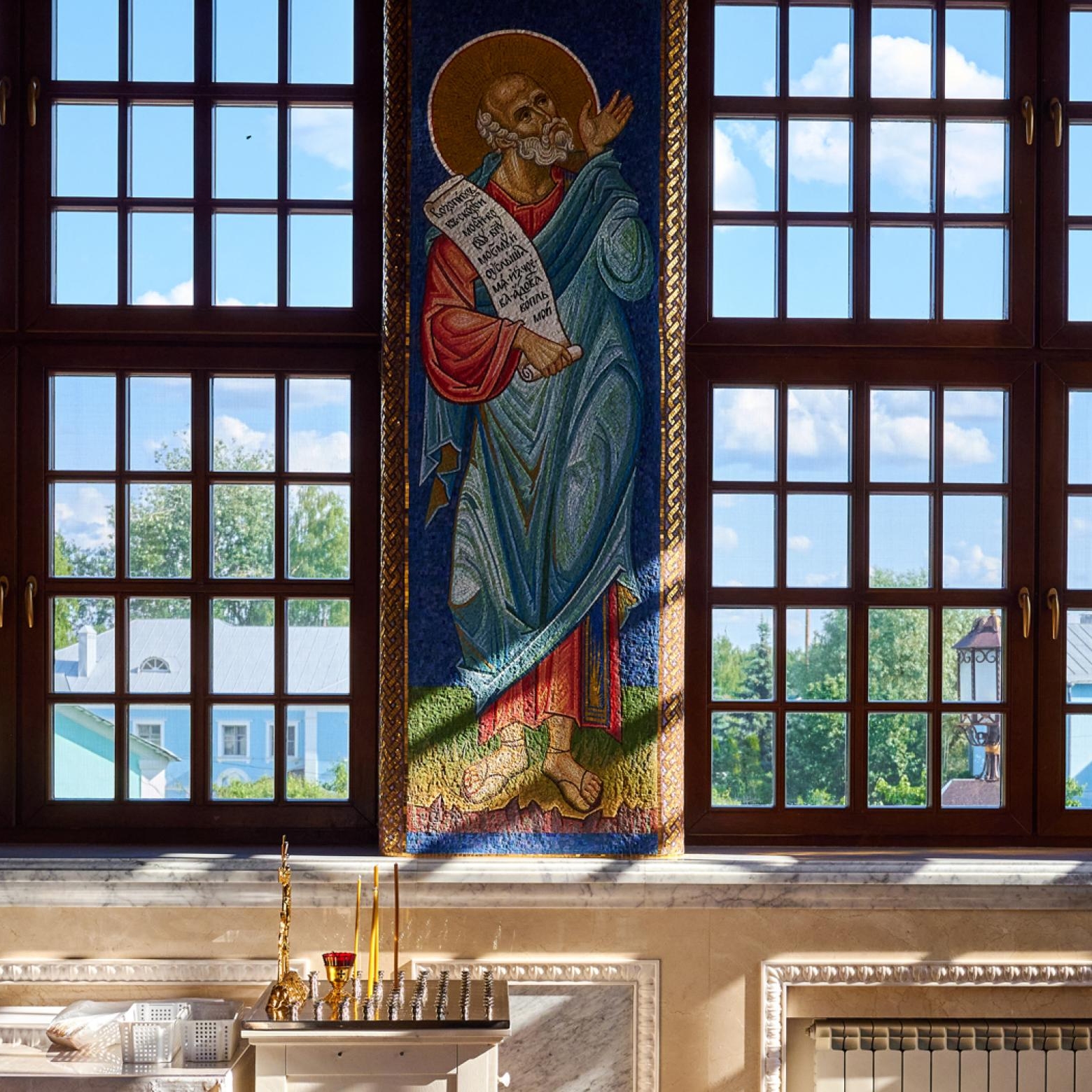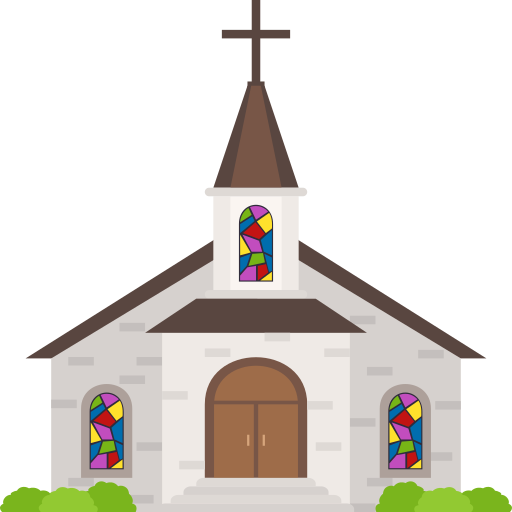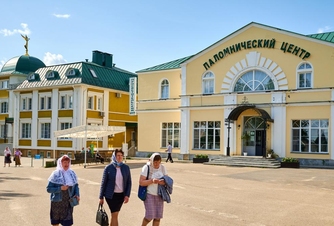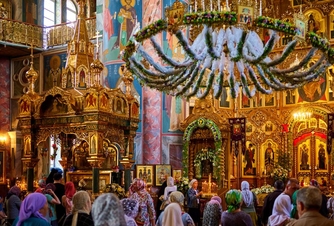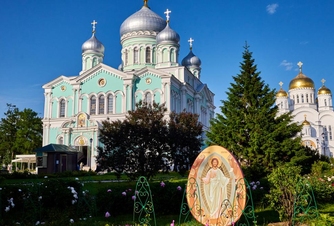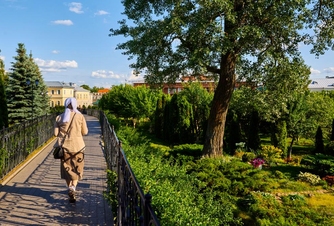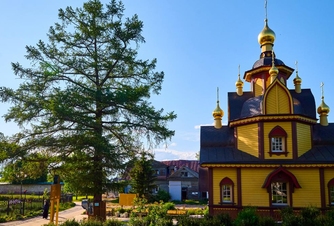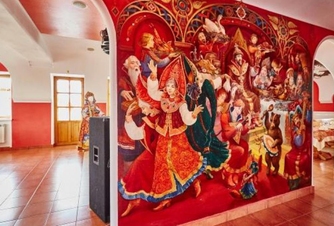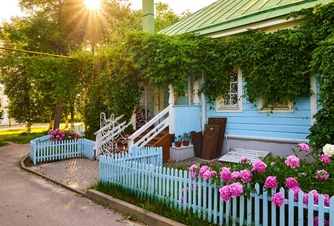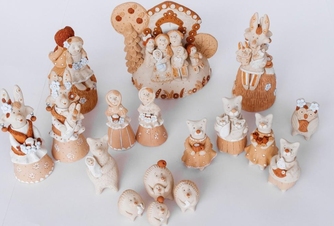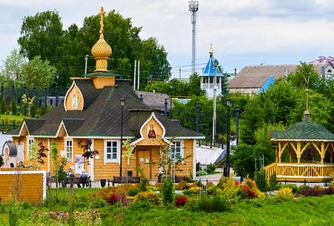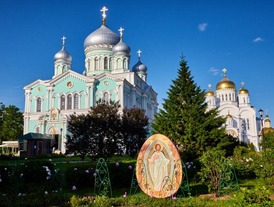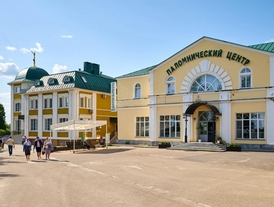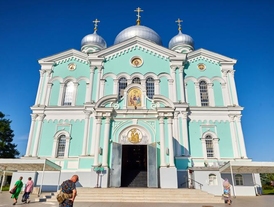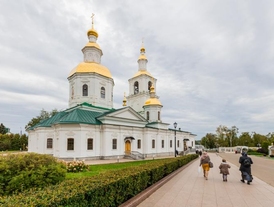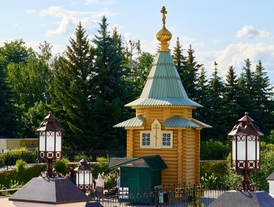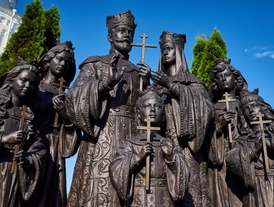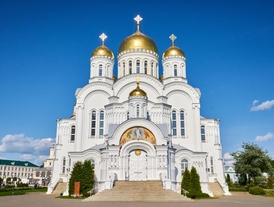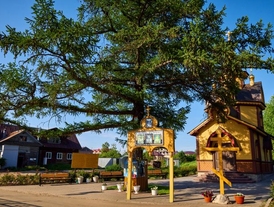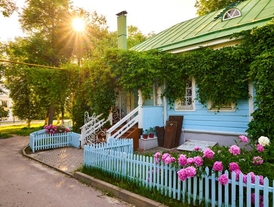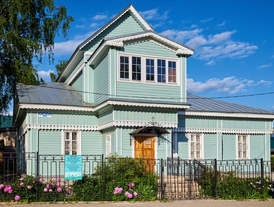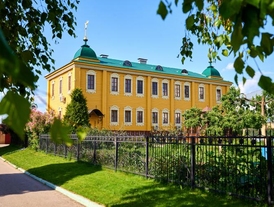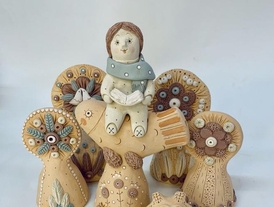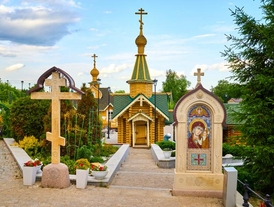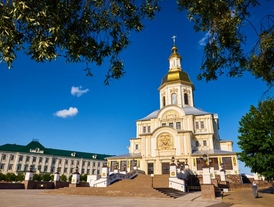Diveevo
The village of Diveevo is an important spiritual center for the Nizhny Novgorod region, and an essential element of the Orthodox pilgrimage in Russia. You cannot make the trip to Diveevo without visiting the Serafimo-Diveevsky Convent, which can be viewed as an entire complex with numerous churches, chapels and shrines. Even if you are going there just as a tourist, rather than a pilgrim, you will see amazing architecture, ancient frescoes, beautiful gardens, and many other interesting things. Most importantly, you will feel that very serenity that can be so lacking in a bustling metropolis.
A FEW FACTS
WHAT TO DO IN THE CITY
01
Contact the Pilgrimage Center
If this is your first time in Diveevo, and you do not yet have a good understanding of the appeal of each of the temples, where you can take a break, and where the shrines are, start by contacting the Pilgrimage Center. There you can book excursions, arrange accommodation in the monastery building, and receive answers to all your questions.
02
Pay heed to the traditions
Even if you are visiting the monastery as a tourist, do not forget that special rules of conduct prevail here, and a dress code is required: behave modestly, do not swear, women should wear long skirts and have their heads covered, and men should not come wearing shorts or T-shirts.
03
Take a sightseeing tour of the temples and shrines
Now you can start exploring the temples of the monastery, among which there are only four cathedrals. Go to the oldest, the Kazan Church, built in the Russian Baroque style in 1773; you will see the ancient frescoes created by the Diveevo nuns. Then head to the main Cathedral of the Trinity, where the relics of St. Seraphim of Sarov are kept, and finally to the white-stone Church of the Transfiguration, which is inspired by ancient Russian architecture.
04
Walk along the Holy Moat
Next to the Cathedral of the Transfiguration you will find the starting point of the Holy Moat, which has a length of 775 meters! It is believed that whoever walks along it reading the prayer «Virgin Mary, Rejoice» 150 times, is promised «all from Athos, Kyiv, and Jerusalem», or in other words, deliverance from all sorrows. In any case, this is a real sightseeing tour of the monastery, during which you will see it in all its beauty!
05
Relax by the larch tree
Not far from the end of the Moat (where, incidentally, consecrated butter and crackers are handed), there grows a larch tree which, as legend has it, was planted by Emperor Nicholas II himself when his heir, Tsarevich Alexei, was born. There is a chapel there, and you can also relax on a bench next to the former monastery pond.
06
Have lunch in the refectory
If you are hungry, you can have lunch in the refectories, which include a free tea room or cafe at the Pilgrim's House. Alternatively, you can buy crackers, bread rolls or kvass at the shop, which you can also bring home as a souvenir. We also recommend you try the Russian cuisine in one of the restaurants at the Diveevskaya Sloboda hotel complex, the Malinovy Zvon («The Raspberry Bel») or Razdolye («Expanse»).
07
Visit the museums
Once you have acquainted yourself with all cathedrals, you can move on to the museums. Start with the memorial house of Paraskeva the Blessed, or the «pustynka». It is the lonely cell for the Diveevo ascetics, where the furnishings of the ancient dwelling of Paraskeva and the other nuns have been preserved. Also, you can also see the personal belongings of St. Seraphim there. You can learn about how Diveevo’s nuns and priests lived in the post-revolutionary period at the Museum of the History of the Diveevo Monastery in the XX century.
08
Inspire yourself with a Diveevo toy
RIght there, on Oktyabrskaya Street, is the Diveevo Toys and Ceramics Museum: a new phenomenon, but a very curious one. Here you can cast your eye over a unique collection of these clay toys in the form of animals, birds and other fabulous creatures.
09
Plunge yourself in the sacred springs
A great end to your trip to Diveevo will be bathing in the sacred springs. There are many of them near the monastery, and the most famous are the Spring of Kazan, the Spring of Panteleimon the Healer, and the Tenderness spring in honor of the Mother of God. A lot of pilgrims come there, and with good reason: it is a beautiful setting with a large swimming pool and baths, as well as a wonderful view of the monastery.
